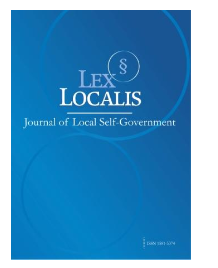GENERATION Z AND INDONESIAN POLITICS: BECOMING SMART VOTERS IN THE 2024 PRESIDENTIAL ELECTION
DOI:
https://doi.org/10.52152/801939Keywords:
Generation Z, Voting Behaviour, General Election, Rational Choice TheoryAbstract
This article aims to analyse the voting behaviour and political participation of Generation Z in the 2024 Indonesian Presidential Election in Gowa Regency, South Sulawesi focusing on factors that influence decision-making, the role of social interaction, and the application of James S. Coleman's Rational Choice Theory in understanding the political decision-making process of young voters. A qualitative approach was used with a phenomenological design. Data were collected through in-depth interviews and observations of 12 high school students who were first-time voters, selected using purposive sampling. Data analysis was conducted using a combination of Grounded Theory and Thematic Analysis to identify patterns, categories, and themes that emerged from the informants' experiences and perceptions regarding their voting behaviour and political participation. The findings reveal that Gen Z considers elections to be an important political experience and conducts rational evaluations of prospective leaders based on integrity, reputation, and morality. Their political participation is not limited to exercising their right to vote, but also includes cognitive and behavioural involvement in political discussions, campaign evaluations, and assessments of political practices such as money politics. Social factors, such as the influence of peers and family, as well as the influence of social media, also shape their preferences, although the final decision is still based on rational judgement. These findings show that Gen Z are reflective, intelligent, and rational voters who are able to balance social influences, moral considerations, and available information in their political decision-making. This study confirms the relevance of Coleman's Rational Choice Theory in the context of young voters' political behaviour in the digital age and provides important implications for political communication strategies and civic education to improve political literacy and participation among first-time voters.
Downloads
Published
Issue
Section
License
Copyright (c) 2025 Lex localis - Journal of Local Self-Government

This work is licensed under a Creative Commons Attribution-NonCommercial-NoDerivatives 4.0 International License.








